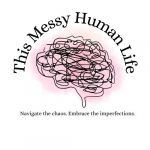Grief and loss happens to us all at some point in our life. The one experience most people think of is the death of a loved one. It is a raw emotional time that can be all consuming, even life changing. Society as a whole is sympathetic to the loss of a loved one, there is collective understanding because we will all experience it.
Yet there are other experiences in our lives that can evoke the same thoughts and feelings. Most of us don’t think or talk about these unless they happen to us or someone we know. When they happen we feel lost and alone in our struggles. Our friends and families can struggle to understand or give you the space you need to work through it.
Clients I have worked with often say that the initial grief support they are given is short lived. They feel that that you are expected to “just get on with it” once the ‘mourning period’ is over. If this is true for the loss of a loved one, for other forms of loss there is even less.
The emotional human experience
Here are four experiences that you might not associate with the heartbreak and despair of grief and loss.
Relationships
Relationships come and go, some end amicably, some don’t. Some end after a short while others afters years. Either way there can still be a sense of grief and loss no matter how good or bad the relationship was. There is a questioning of ourselves, our emotions. We can be angry at the other person or even ourselves and that can be confusing. It can help to talk to someone who doesn’t know either of you about these thoughts and feelings.
Disability/chronic illness
Having a disability or a chronic illness, whether you are born with it, it happens over time or it happens suddenly, can create a number of struggles with grief and loss around identity, independence and difference. Therapy can help through this and aid in your acceptance of your new way of life.
Unemployment changes
Losing a job has a huge effect on a persons life, it can be a confusing and uncertain time. Your sense of self is shaken, and the fear of letting others down creates shame when you lose your financial independence. On top of finances here is also the loss of work colleagues and the camaraderie of belonging.
Another employment change that creates feeling of grief and loss is not getting the job that you wanted. A lot of people daydream about what a financially secure job can bring them. Some people become so invested in this dream that when this doesn’t happen it leads to grieving the life that you never had.
Pet loss
The loss of a pet can create the same grief responses of any bereavement. Despite understanding in society, there isn’t full recognition over the depths of emotions when grieving a pet. Initial reactions are supportive but after a while there is a sense of having to “get over it”. When you have spent a long time with a pet it becomes your closest companion. To some their pets are their ‘children’, the loss is as overwhelming as losing any human loved one.
Where to go for help for grief and loss
As with all forms of grief there is no right or wrong way to grieve, there isn’t a straight line from one stage to another. Grief is messy, chaotic and confusing. One day you feel as though you are coping, the next like the rug has been pulled out from under your feet. Take each day as it comes and allow yourself to feel. Taking to friends and family can help. In most instances sharing grief can help process and reduce feelings of isolation.
Physical symptoms may also arise, though you might not realise these stem from grief. My blog post here lists the common physical symptoms of grief.
If you are really struggling and are feeling intense emotional distress, talk to your GP. They may be able to offer therapy or put you in touch with any local groups.
As well as counselling and your GP, finding others who are ‘in the same boat’. Online forums and charities tailored to your experiences can all help make sense of your emotions. If you are struggling with bereavement or issues surrounding grief and live in the UK, the following links may help:



